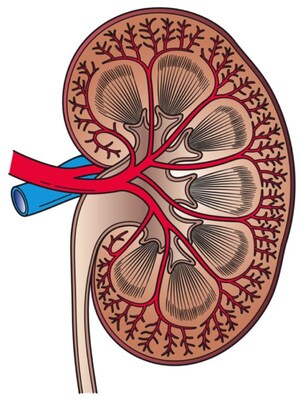Game of Equals: Fighting Microbial Threats to Food Safety using--Well--Microbes!
Scientists have identified the best eco-friendly methods to fight bacteria that cause foodborne illnesses
SEOUL, South Korea, Jan. 21, 2021 /PRNewswire/ -- Foodborne illnesses are typically caused by microorganisms living in organized and complex networks called "biofilms." These can be "mono-species" or "multi-species" biofilms. Eating food contaminated with pathogenic microbes causes an estimated 420,000 deaths annually according to the World Health Organization. While some microbes like lactic acid bacteria confer benefits in food safety and nutrition, no current physical or chemical methods can eliminate unfriendly biofilms from food entirely without causing adverse side effects.
Now, in a new article published in Trends in Food Science & Technology, the top journal in the food science field with an impact factor of 11.077, Professor Sang-Do Ha from Chung-Ang University, Korea, along with his colleagues, has reviewed the existing literature on biofilm formation and its impact on food industries to identify effective eco-friendly approaches to eradicate unfriendly microbes. "Contamination due to biofilms can occur in all types of food — raw, minimally processed, fresh, and ready-to-eat," says Prof. Ha. "Pathogenic biofilms can accumulate on various food processing machines like milk storage tanks and the conveyer belts of meat-processing plants or on the surface of packaging equipment."
Based on previous studies, the researchers propose that both mono- and multi-species bacterial biofilms can be countered by biological agents derived from microorganisms, like bacteriocins, a heterogenous group of proteins produced by microorganisms like lactic acid bacteria and noted for their green and safe properties to thwart the transmission of pathogenic microorganisms, inhibiting biofilm formation; microbial-derived "surfactants," naturally produced by microorganisms and are both hydrophobic (repelled by water) and hydrophilic (attracted to water) and weaken the bacteria-to-bacteria and bacteria-to-surface connections; "bacteriophages," which are currently used in food plants and are naturally occurring viruses that specifically target foodborne bacteria to control biofilm formation in both mono- and mixed-bacterial species; biological catalysts/enzymes like lyases and hydrolases that disrupt cell-to-cell communication systems and break down biofilm structures; and "quorum-quenching compounds" that inhibit specific gene expression in bacteria to disrupt cell-to-cell communications and thus prevent biofilm formation.
The use of chitosan (a sugar which disrupts the bacterial cell membrane), bacteriocin-like inhibitory substances (active anti-biofilm agents that work much like bacteriocins), and bacterial second message inhibitors (which could steer the transmission of signals within the cell to avoid forming biofilms), was also mentioned by the researchers as additional strategies.
Prof. Ha believes that the right combination of two or more approaches will be necessary to disrupt the diverse matrix of components in bacterial biofilms. "These emerging novel approaches need to be verified by extensive in vitro and in vivo studies," he says, "We need to see more multidisciplinary research so that improvements to existing processes can be developed alongside the creation of novel biological agents that are easier and cheaper to produce."
Reference
Title of original paper: Fighting with old foes: The pledge of microbe-derived biological agents to defeat mono- and mixed-bacterial biofilms concerning food industries
Journal: Trends in Food Science & Technology
DOI: 10.1016/j.tifs.2020.03.019
Chung-Ang University Website
https://neweng.cau.ac.kr/index.do
About Professor Sang-Do Ha
Sang-Do Ha is a Professor of Food Science & Technology, Director of Center for Food Safety at Chung-Ang University. His group is developing approaches to control bacteria and viruses by finding green microbes and developing new microbe-derived biological agents to control bacterial biofilms concerning food industries. Before joining Chung-Ang University, he completed 8 years of research at the Korea Health Industry Development Institute. In 1994, Sang-Do Ha received his PhD in Food Science & Technology from Texas A&M University, USA.
Media contact:
Seong-Kee Shin
[email protected]
02-820-6614
SOURCE Chung-Ang University

WANT YOUR COMPANY'S NEWS FEATURED ON PRNEWSWIRE.COM?
Newsrooms &
Influencers
Digital Media
Outlets
Journalists
Opted In






Share this article